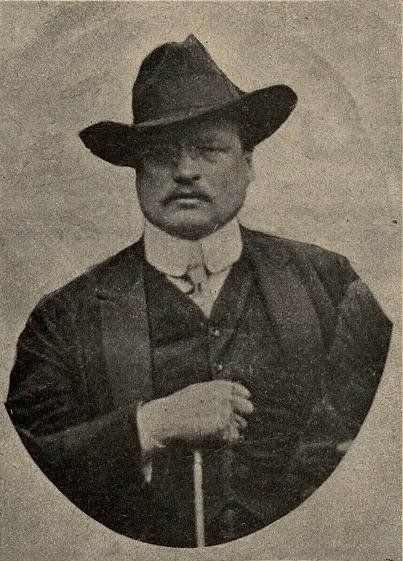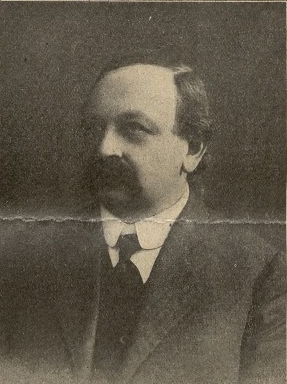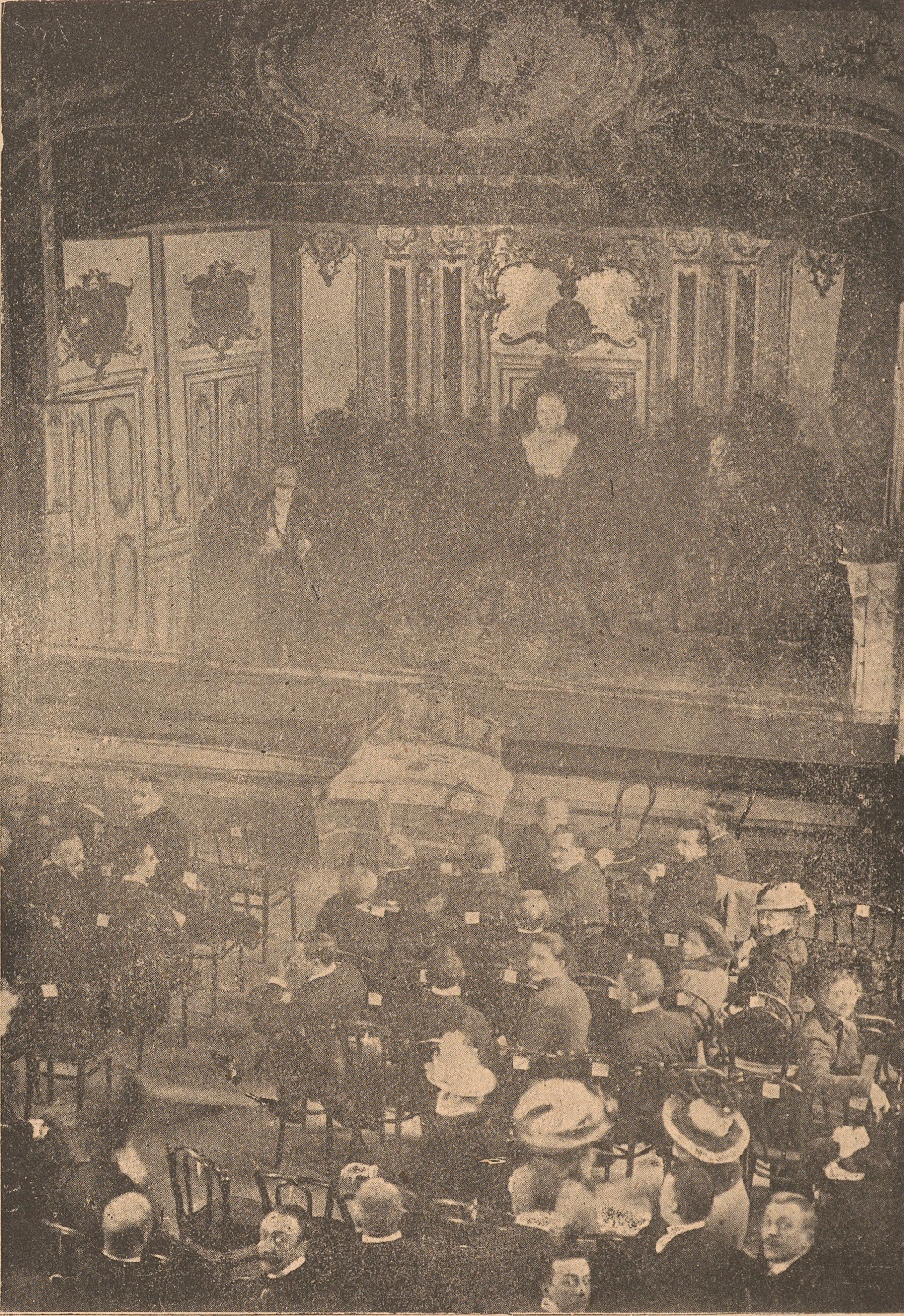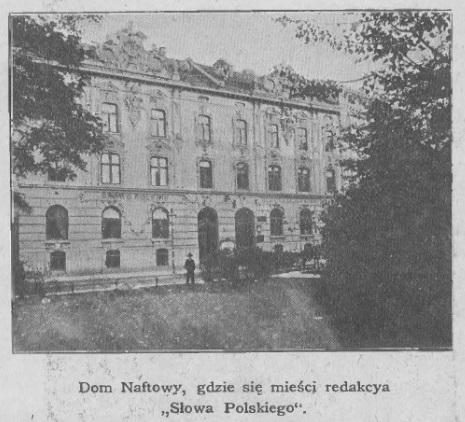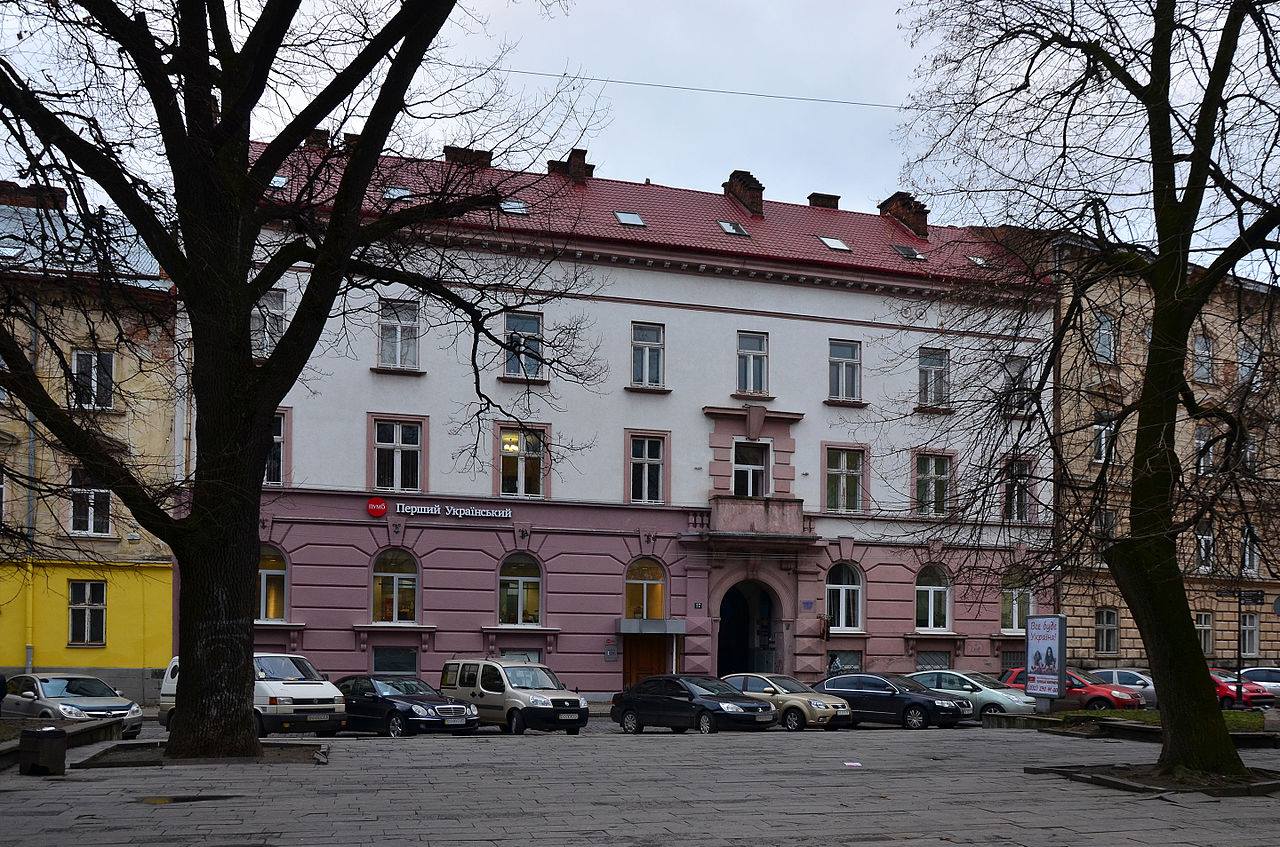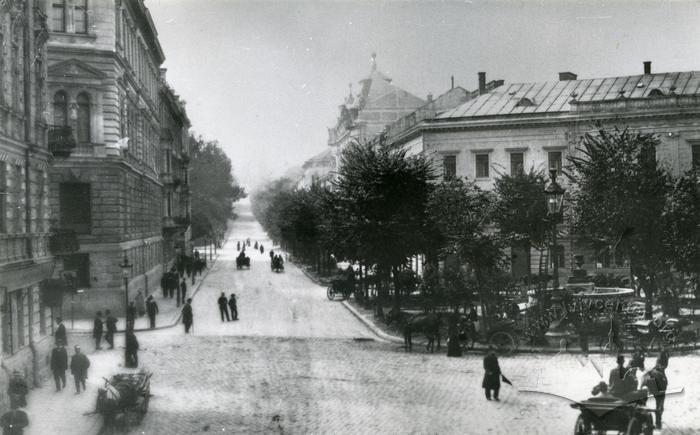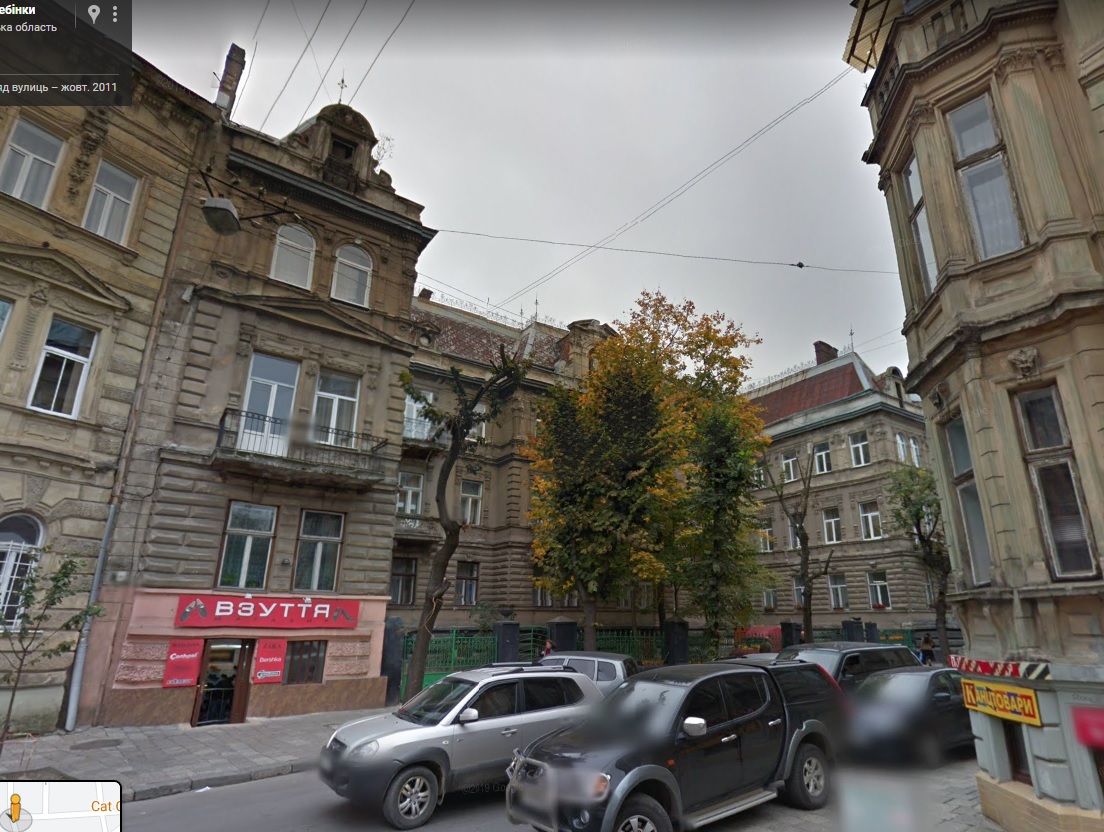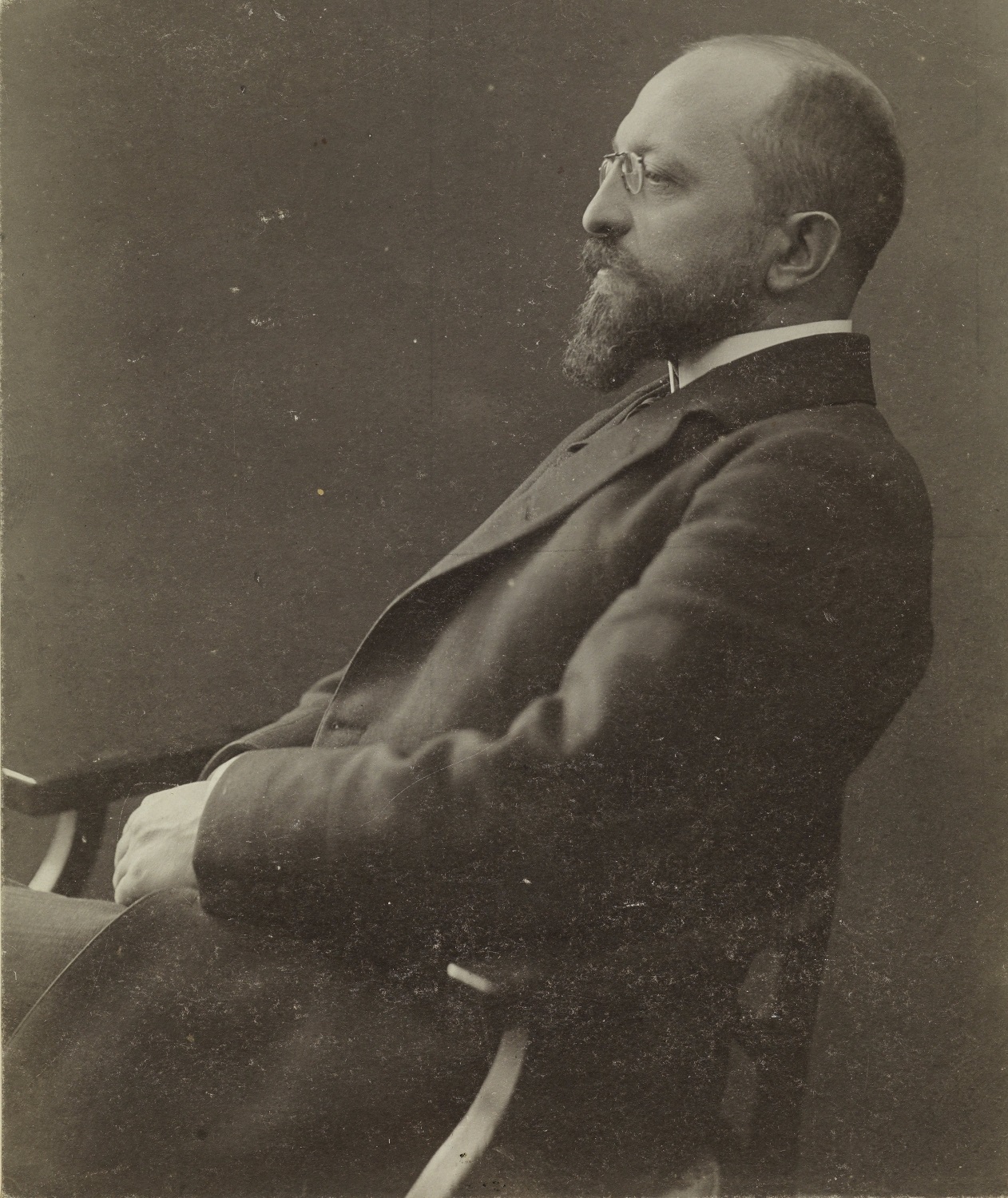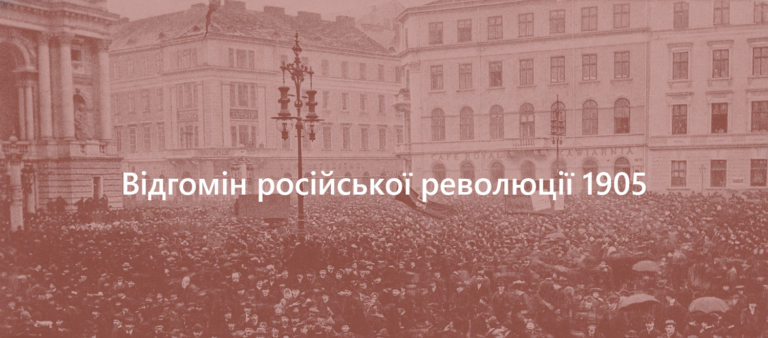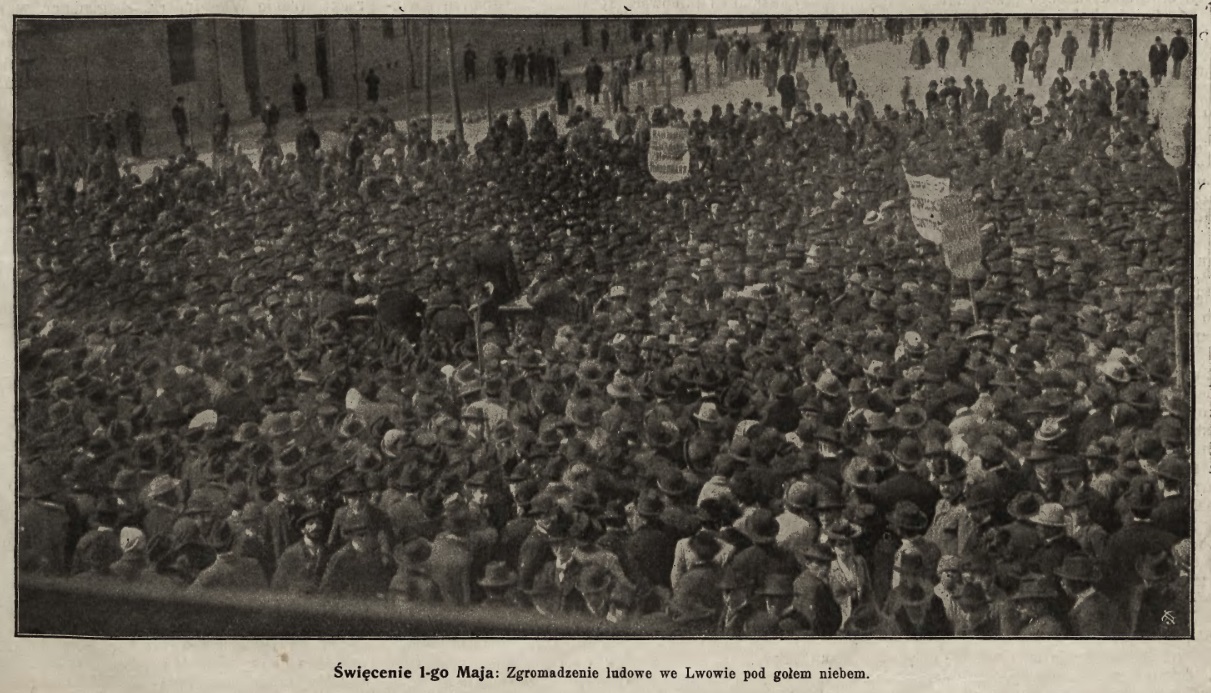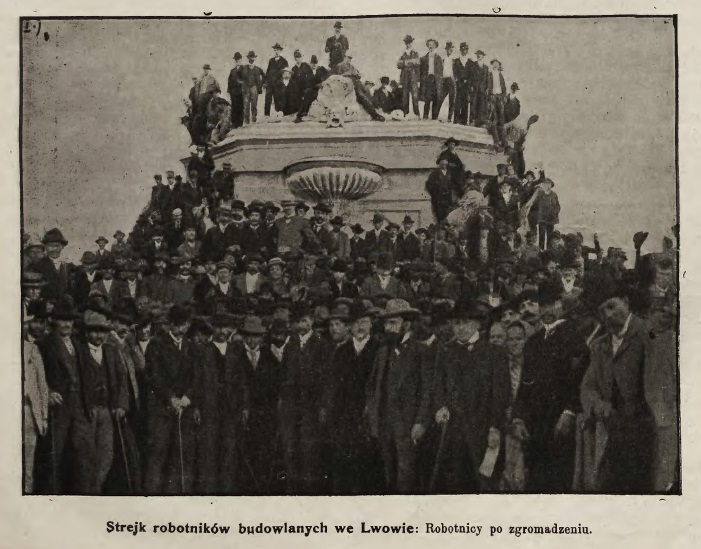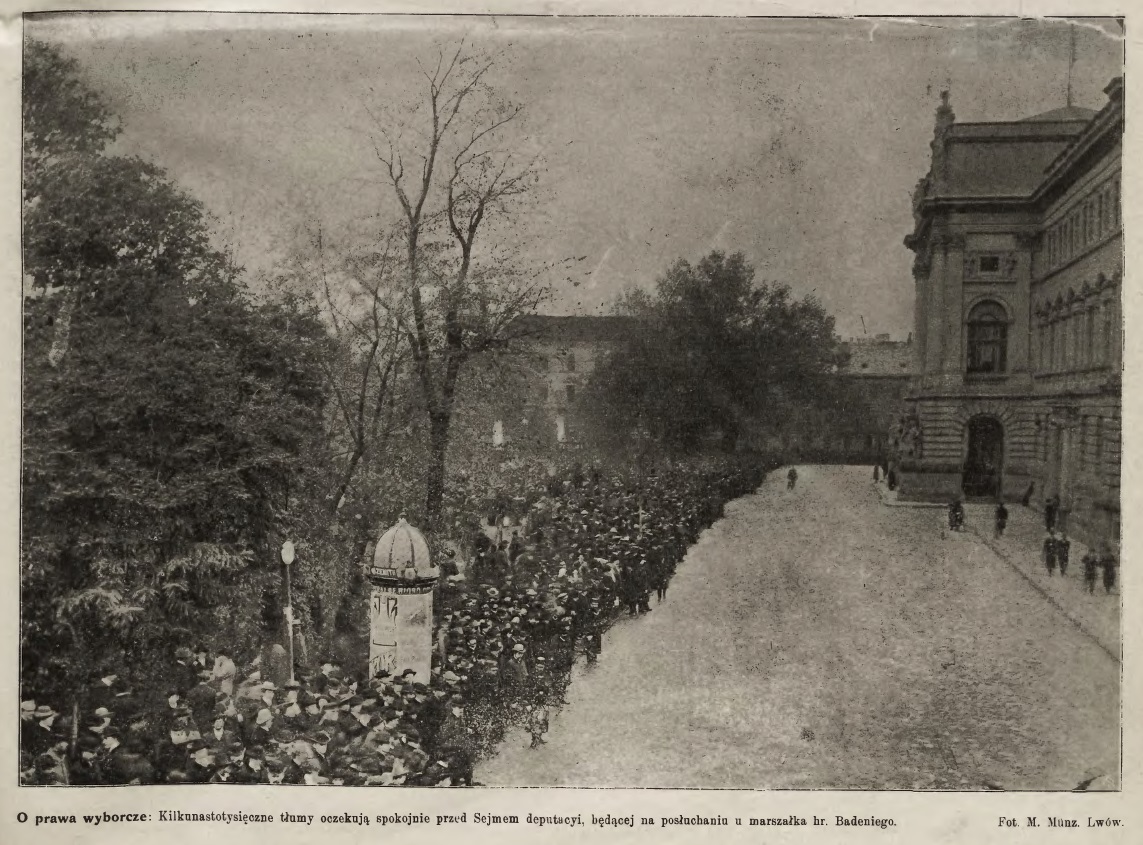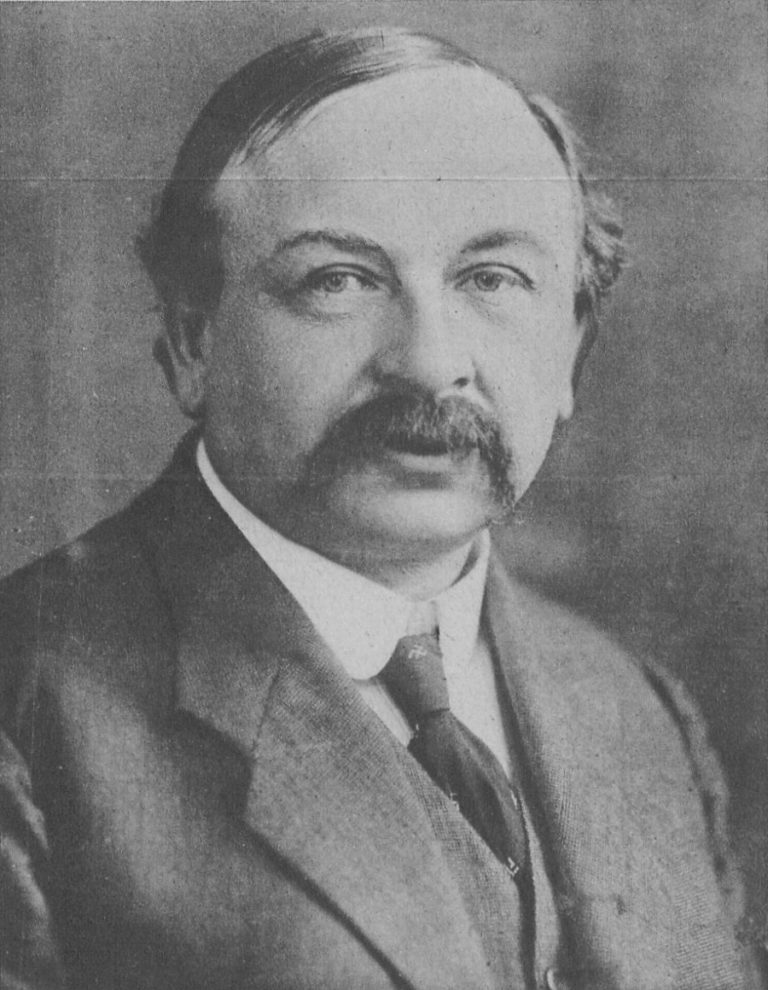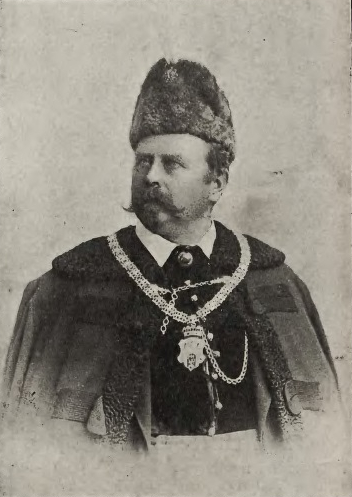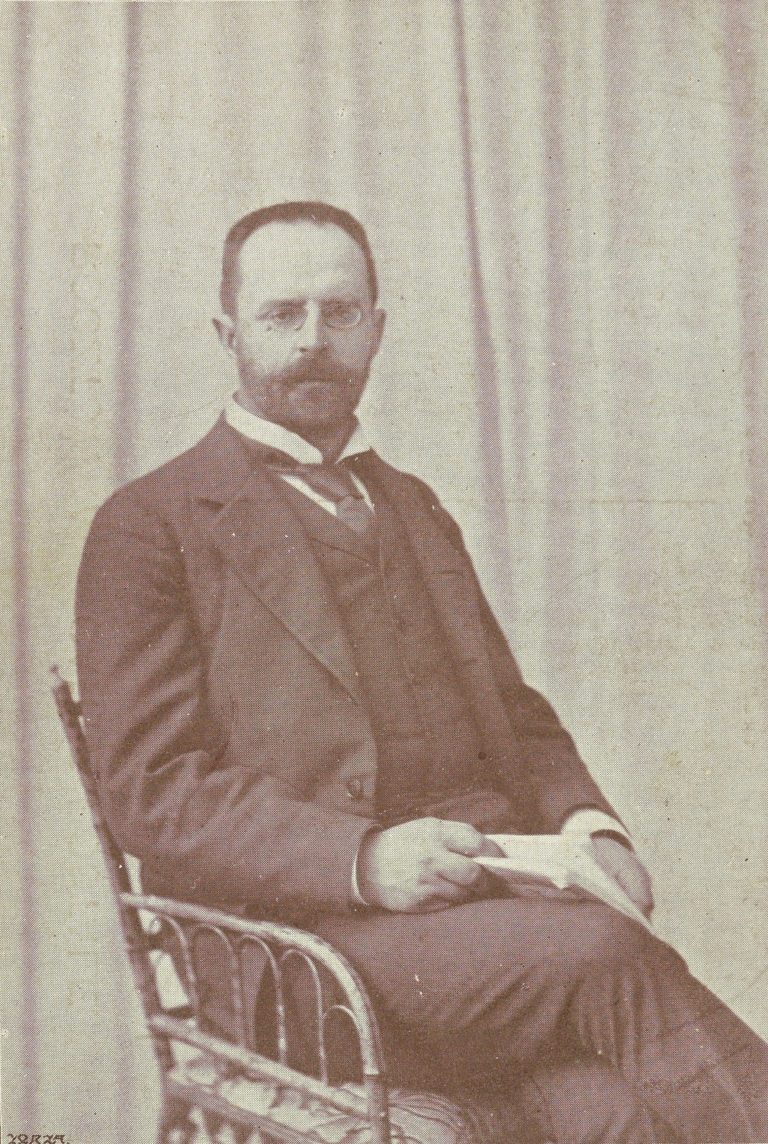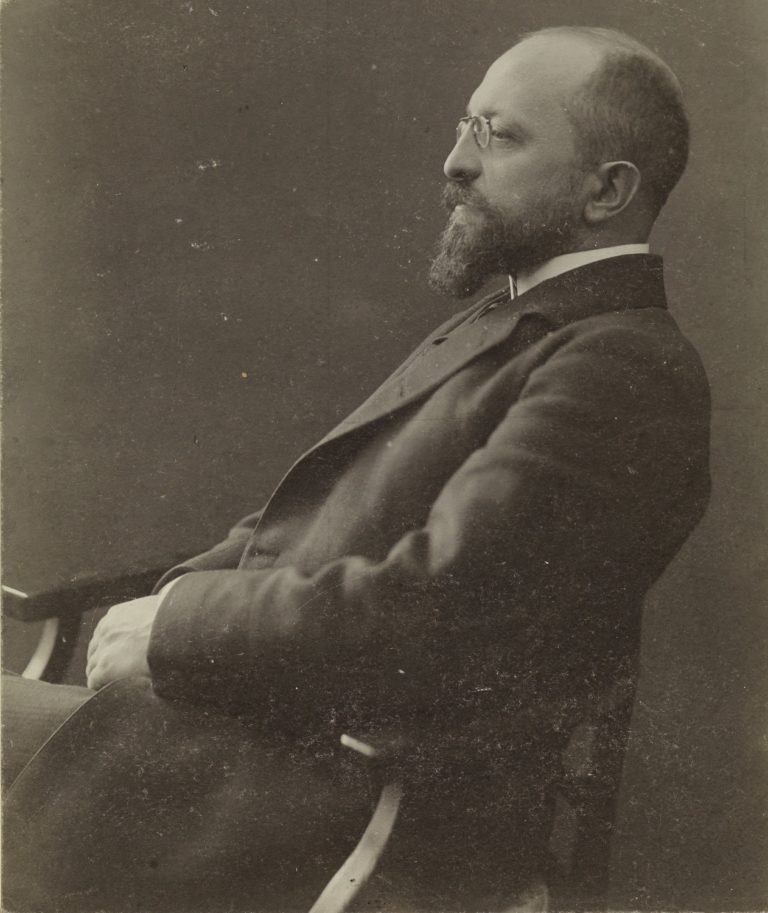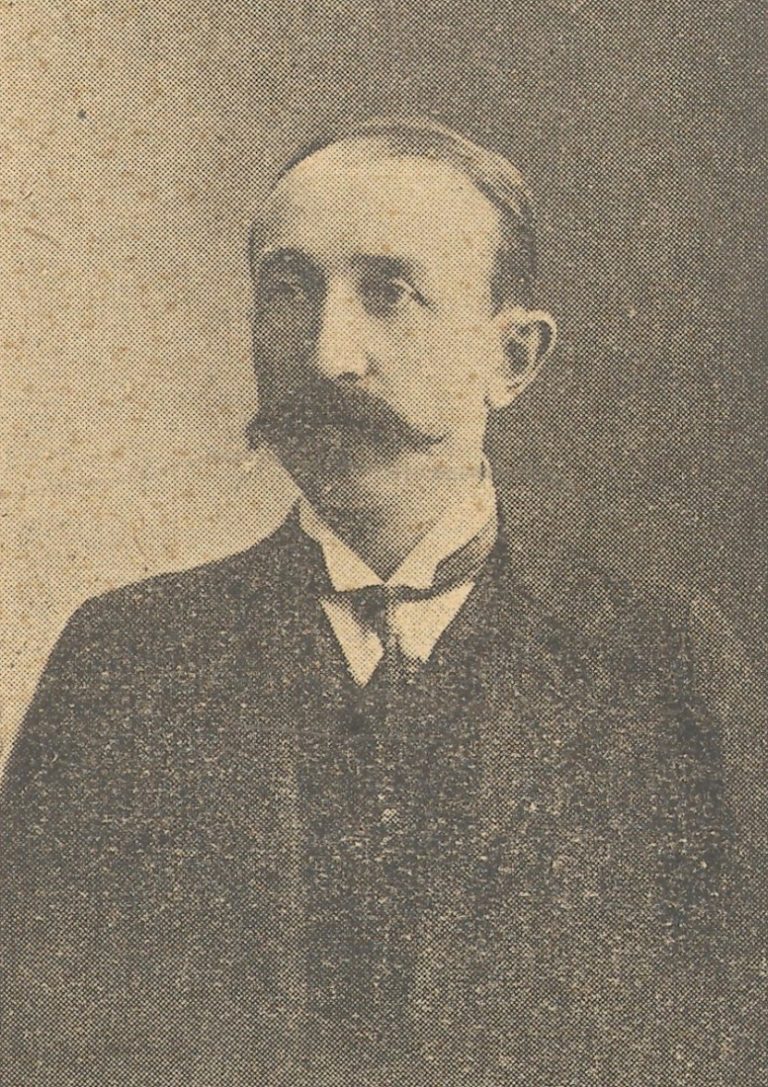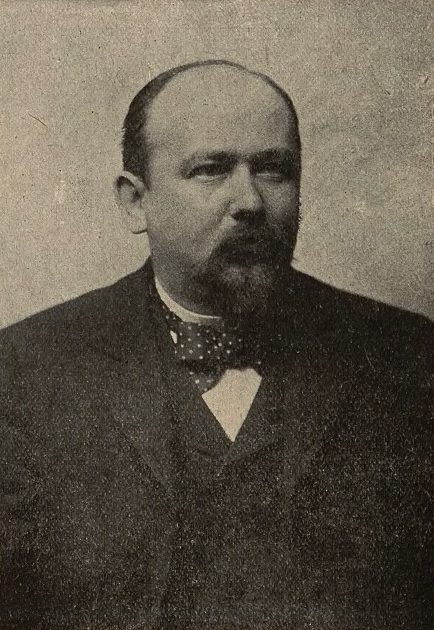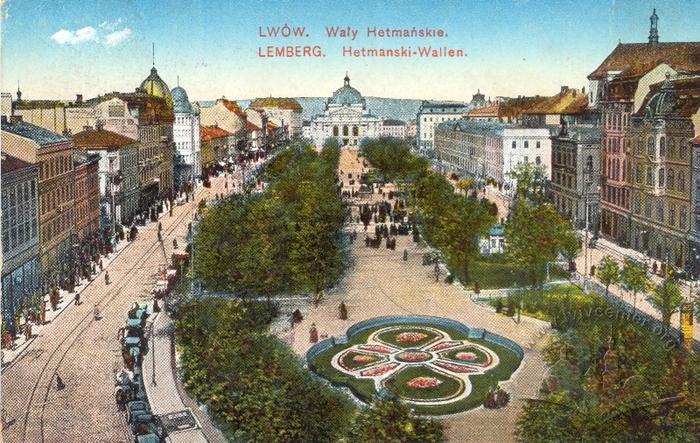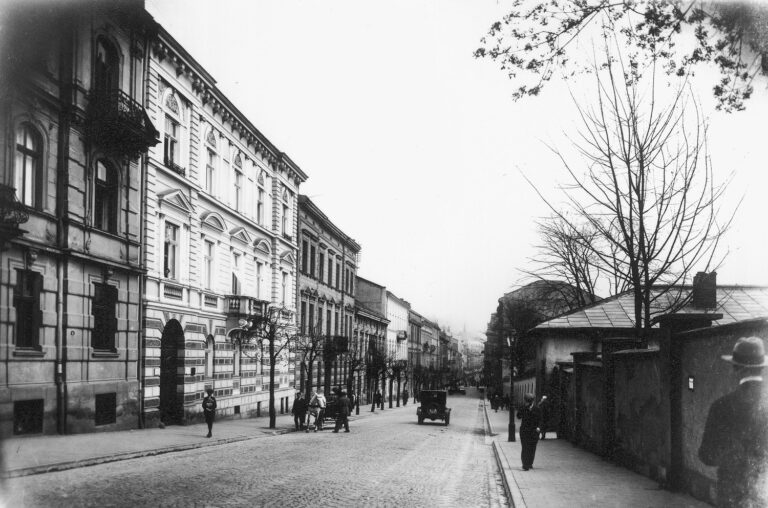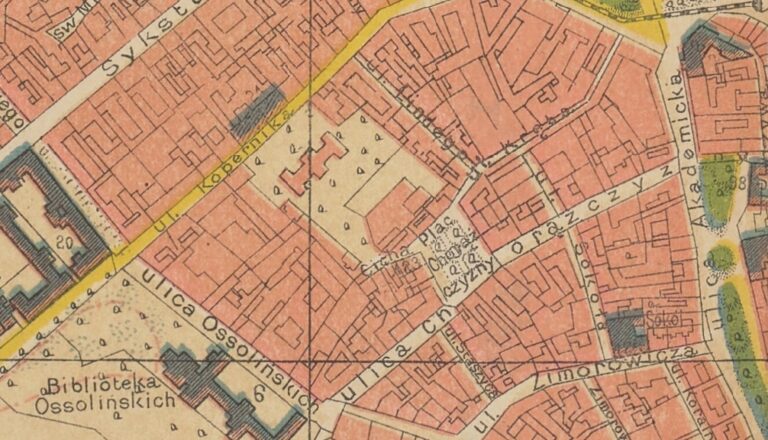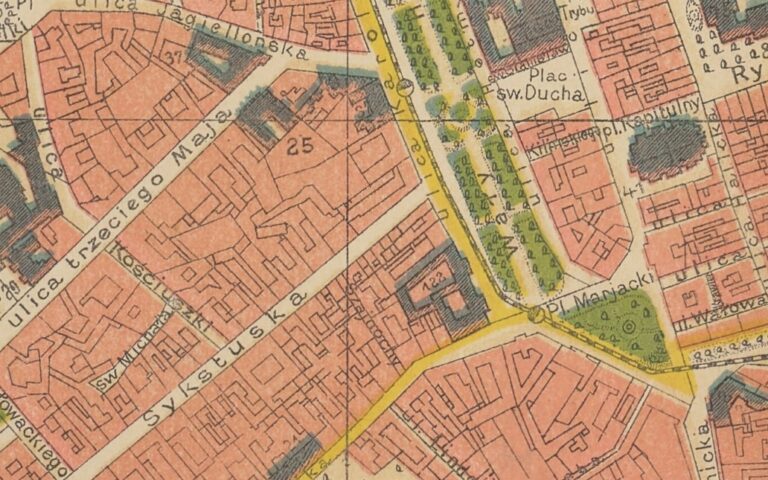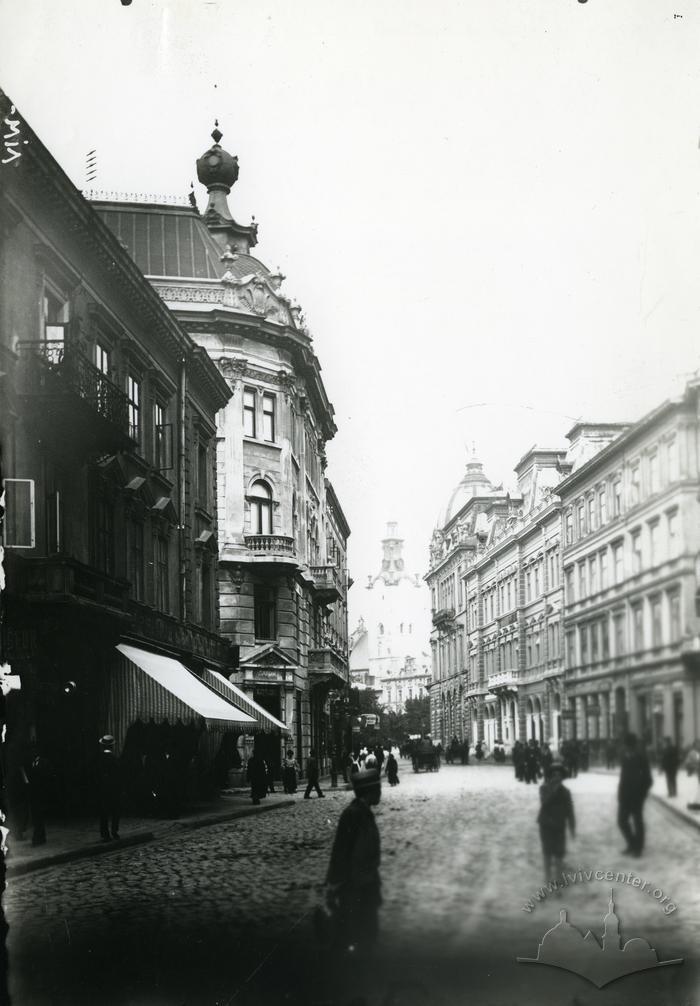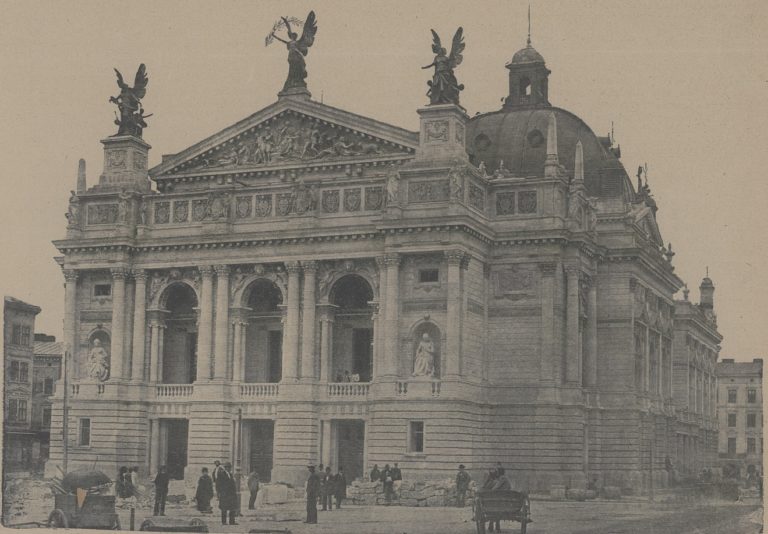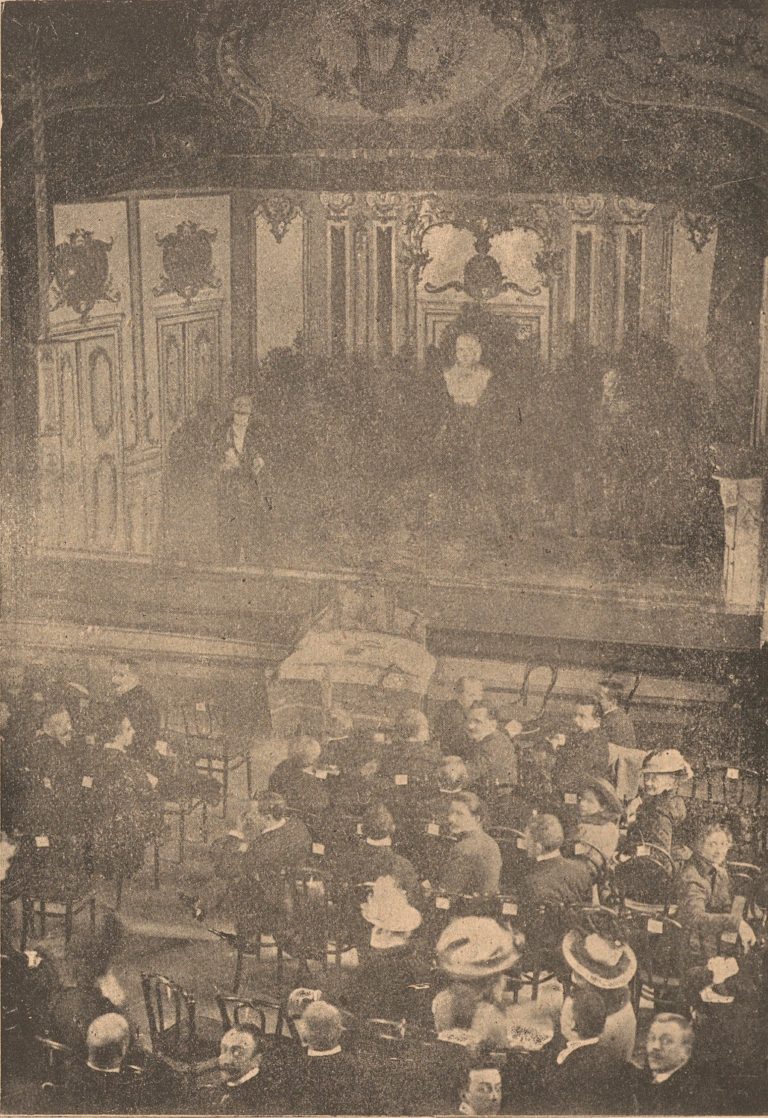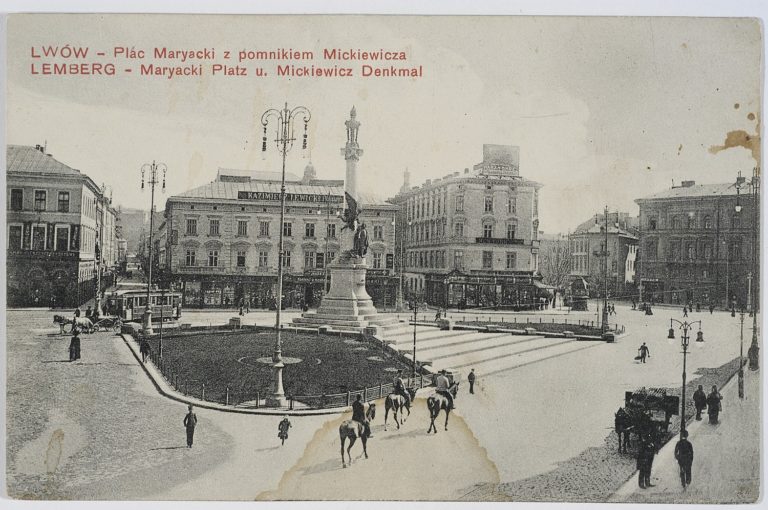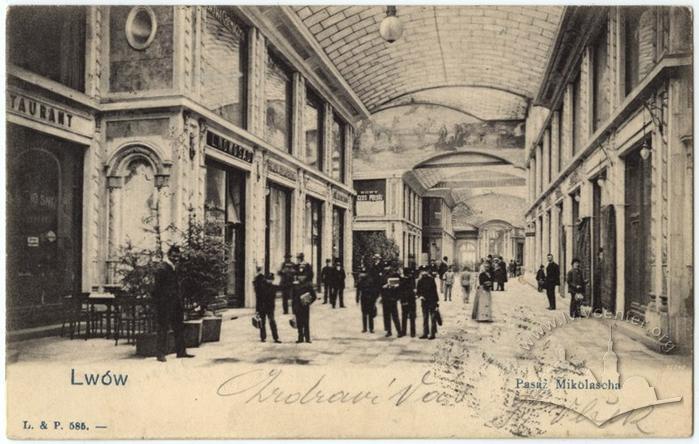In late January 1905, the Russian authorities suppressed workers' demonstrations in the cities of the Kingdom of Poland. After that, the Lviv Social Democrats organized a meeting of students and workers, which ended with a march through the city center and a devastation of the newspaper Słowo Polskie editorial office. The newspaper was clearly well disposed to Polish nationalists (National Democraic Party, so-called endecja), publishing anti-Semitic articles and critical materials about Polish strikers in the Russian Empire and labeling their actions as "socialist terror."
This event, on the one hand, was a typical socialist manifestation in Lviv, when due to the lack of workers, a large part of the demonstrators consisted of students having leftist political views. On the other hand, it was a typical patriotic rally, since it was about solidarity with the Poles fighting against the Russian tsarist regime. This is an example of how the situation gets out of the organizers' control and ends in clashes, as well as an illustration of Polish-Ukrainian-Jewish relations among social democrats.
Manifestation in Lviv on January 31, 1905. A social-democratic assembly in the Teatr Ludowy and the devastation of the Słowo Polskie editorial office
On the evening of January 30, a student assembly was held, which "congratulated and supported the strikers." As soon as Monday, January 31, on the initiative of the PPSD (Polish Social Democratic Party of Galicia and Silesia), a meeting was held in the Teatr Ludowy (People's Theater) on ul. Szajnochy (now vul. Bankova) to discuss the situation in Russia. It was organized despite the police ban and the absence of the main speaker, Mykola Hankevych. Instead, Semen Vityk and Herman Diamand spoke. They thanked the City Council of Lviv for their sympathy for the workers injured in clashes with Russian gendarmes and described the situation in Russia.
In the end, recent issues of the Lviv newspaper Słowo Polskie were cited in which the workers' actions had been criticized. The newspaper condemned the demonstrations for anarchy in the streets, justified the actions of the gendarmes and the Russian army, and also systematically questioned the very idea of a socialist revolution. The meeting participants were told that nationalism, anti-Semitism and hostility toward socialism were directed against the Polish-Jewish union in the Kingdom of Poland.
After that, not everyone heard the calls to break up; almost half of the meeting participants (about 500 people) decided to go to the editorial office of the mentioned periodical to express their indignation. The youth broke the windows of the Słowo Polskie kiosk in the Mikolasza passage, scattering books and newspapers. Then they went to ul. Chorąszczyzna (now vul. Skoryka), where the newspaper's editorial office was located, but the police were already waiting for them at the gate. Therefore, the demonstrators only broke the ground and first floor windows of the building with stones and sticks and smashed the information board at the entrance. Then they went home, the police not detaining anyone.
On the following day the Słowo Polskie reported that socialists had attacked two women: the watchman's wife, who tried to prevent the demonstrators from entering the courtyard, and the saleswoman at the newspaper kiosk from which "the books were stolen." The police, the publication claimed, "were keeping themselves aloof."
In the government-run Gazeta Lwowska, there was a brief note mentioning the speakers at the meeting, thirty-three broken windows and the mess at the newspaper kiosk.
February 2, 1905. An assembly of students of "three nations", solidarity of workers and students, a march to the City Theater and to the monument to Mickiewicz
On February 2, a student assembly was held in the same premises on ul. Szajnochy. The democratic Polish periodical Kurjer Lwowski reported about "the Polish academic youth of Lviv, who welcomed the explosion of an open revolutionary struggle against tsarist tyranny", and also "welcomed young Russia, which was ready to join the liberation of Poland-Lithuania-Ukraine and other nations". It is interesting that this wording seems to mention different peoples, but only Polish students were mentioned as organizers, while the wording in respect of three peoples is a clear allusion to the Polish-Lithuanian Commonwealth.
Meanwhile the Ukrainian populist newspaper Dilo reported about a meeting of "academic and polytechnic youth of three nationalities", as well as about the future "new Russia, which could participate in the liberation of Ukraine, Poland, Lithuania and other nations." Separately, it was noted that the students had adopted a resolution in support of the Russian writer Maxim Gorky, arrested in St. Petersburg after condemning the shooting by the tsarist troops of a demonstration on January 22 (the so-called Bloody Sunday). Cultural and scientific figures of many European countries came out in support of him at that time, student demonstrations were held in many cities.
The meeting's resolution was adopted in three languages: Polish, Ukrainian and Yiddish; later, the situation in Russia, helping the victims and the position of the Lviv newspaper Słowo Polskie were discussed. At the end, the assembly was joined by workers who came to ul. Szajnochy, singing the anthem Red Flag (pol. Czerwony sztandar). Several of them entered the assembly room and assured the audience from the stage that the workers would help the students in their struggle.
Then the students and workers formed a column, which, according to the newspaper Dilo, consisted of 1,500 people. The route ran through ul. Sykstuska and ul. Karola Ludwika to the City Theater and then along ul. Hetmańska to the monument to Mickiewicz. The demonstrators carried banners reading "Down with the tsarist regime!", "Long live the free and independent Polish and Ukrainian republic!" as well as "similar Polish ones."
The Kurjer Lwowski, however, described completely different banners. At the head of the column, there was a red standard with the inscription "Long live the revolution" in Polish, then a white-and-red banner with the inscription "Down with the tsarist regime" and "Long live the free and independent Polish and Ukrainian republic" in Polish and Ukrainian. On ul. Hetmańska, the police commissioner asked the workers to roll up the banners, but they ignored him.
When the workers and students approached the monument to Mickiewicz, one of the students, delivering a speech, demonstratively shook hands with a worker, urging them to fight against the tsarist regime. At that moment, a big red flag was raised over the crowd. The assembly participants sang the workers' anthem and Jeszcze Polska. After this theatrical scene, Semen Vityk summed up the results of the rally and urged everyone to disperse calmly. In the end, the city center returned to its usual appearance, only pl. Smolki, where the Russian consul lived, was surrounded by the police.
The materials of the government-run periodical Gazeta Lwowska and the nationalist Słowo Polskie — both newspapers openly did not sympathize with the demonstrators — differed even more. The Słowo Polskie reported that "a faction of academic youth: socialists, as well as Ukrainian and Jewish youth" had organized a meeting of 400 people rather pretentiously called an "all-student assembly." The joint march with the workers was estimated at 1,000 people, the Polish inscription on the banner reading "Long live the revolution!" During the demonstration, the Russian consulate was surrounded by both mounted and unmounted police units.
The government-run newspaper Gazeta Lwowska wrote about youth "factions" too, while the number of participants decreased to 650 students and 150 workers. However, it reported about the red and red-and-white flags, as well as about the Ukrainian and Polish inscriptions on the banners. As was usual in such cases, the police actions were described in a positive way: the police allegedly forced the demonstrators to hide the provocative banners, prevented them from crossing ul. Jagiełłońska to the Russian consulate at ul. Sykstuska 46, and even filed reports against two demonstrators for resisting the authorities and insult of honour.
After the rally
On the following day, February 3, Zygmunt Wasilewski, the editor-in-chief of the Słowo Polskie newspaper, was ambushed near his house in the morning and punched in the face. One of the attackers, a student of the Polytechnic, was detained by passers-by and handed over to the police. This caused a new round of discussions about freedom of speech, acceptable methods of political struggle and the participation of young people in politics.
On February 4, the newspaper Dilo reported that the president of the city, Michał Michalski, was summoned by the governor Count Andrzej Kazimierz Potocki. The reason was an "anti-Russian demonstration in the City Hall", when the City Council adopted Józef Hudec's resolution of solidarity with the Polish anti-tsarist fighters. Konstantin Pustoshkin, the Russian consul, appealed to the governor because of this resolution. Later, it was rumoured that the consul was asking the government to move the consulate back to Brody, because it was becoming impossible for him to work in Lviv due to demonstrators.
